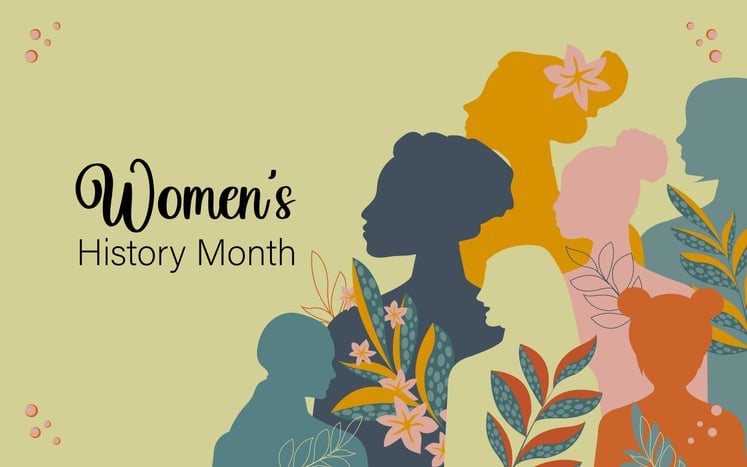March is Women’s History Month. Officially established by Congress in 1987, it is an annual celebration in the United States that honors the contributions and achievements of women throughout history.
Women have long played a pivotal role in exposing corruption, advocating for justice, and safeguarding the public interest. This Women’s History Month, WNN honors some of the courageous women whistleblowers who risked their careers, reputations, and even personal safety to reveal the truth. Their bravery has not only led to groundbreaking changes but has also inspired future generations to stand up against misconduct.
Dr. Marsha Coleman-Adebayo
Dr. Marsha Coleman- Adebayo had the courage to sacrifice her career in the U.S. Environmental Protection Agency in order to speak out against vanadium poisoning in South Africa. She exposed environmental problems in South Africa that were allegedly caused by an American company and not being addressed by the EPA. Knowing the problem could be resolved, she voiced her concerns for an investigation.. However, she was dismissed and faced backlash from her superiors.
In 2000, she won her discrimination case and also managed to advocate for a whistleblower protection law called the No Fear Act. The No Fear Act requires federal agencies to take accountability for violations of anti-discrimination and whistleblower protection laws by publicly posting data related to complaints.
Dr. Coleman-Adebayo spoke about the experience she had, saying “I was surprised that in the environment of the EPA, instead of being rewarded for being proficient in what you do, loyalty was a much greater value. When I began questioning U.S. policy, I was considered disloyal. And at that point, at the minds of many people at the EPA, I had become their enemy.” This experience inspired her to write a book for people to become informed about a variety of occurrences and that speaking up does make a difference no matter how big or small.
Julia Davis
Julia Davis, a national security whistleblower, served as a Customs and Border Protection officer at the San Ysidro Port of Entry who won a multi-million settlement against the Department of Homeland Security. She filed a report to the Federal Bureau of Investigation’s Joint Terrorist Task Force (FBI/JTTF) exposing serious shortcomings in the process of aliens from terrorist-designated countries entering the United States. Julia was an exemplary employee but after speaking up, she received a considerable amount of backlash.
There were a total of 54 retaliatory investigations that were started against her, with the end goal of discrediting her from the great work she had done throughout her time there. Her newly appointed supervisor proceeded to target Davis along with the other port management to drive her from the federal law enforcement through investigations, mistreatment and harassment which caused Davis to involuntarily resign. Davis made the decision to file a lawsuit against the department of homeland security, the judge ruled in her favor considering that no one would work in the conditions she was in at that moment. In the end, this case was made into a documentary film called “Top Priority: The Terror Within” which premiered on May 16, 2012, to tell Julia’s story.
Sibel Edmunds
Sibel Edmonds is now the founder of the National Security Whistlerblower Coalition (NSWBC), a non-profit organization dedicated to aiding national security whistleblowers. Previously, she worked as a language specialist for the FBI’s Washington field office. While working there, she discovered security breaches, cover-ups, and an intentional blocking of intelligence, some of which had national security implications. Bravely, she decided to report it but soon faced retaliation and was fired in March 2002. The Attorney General and Congress came to the decision to block Sibel’s case with the assertion of “States Secrets Privilege” which prevented her case from being discussed. However, she was successful in pursuing a Freedom of Information Act (FOIA) request and obtained critical findings from the U.S. Department of Justice Office of Inspector General confirming that the FBI had retaliated against her for reporting misconduct to the proper authorities. Sibel later successfully spoke up about her story without FBI intervention by publishing an autobiography called Classified Woman- The Sibel Edmond Story, which came out in 2012.
Kimberly Young- Mclear
Kimberly Young- Mclear blew the whistle and exposed misuse of power in how the Coast Guard handled bullying, harassment, and discrimination allegations, having herself experienced two years of workplace bullying and harassment. However, when she reported her allegations to her higher-ups, her case was undermined by a biased and unqualified investigator who had a relationship with the harasser and like many other women who blew the whistle, she was retaliated against.
An investigation by the Department of Homeland Security Office of Inspector General substantiated Young-Mclear’s allegations of retaliation. In 2023, a group of advocacy organizations sent a letter to President Biden asking for Young-Mclear’s courage to be acknowledged.
In an interview, she was asked what advice she received during the process and she responded, “The best advice I received from a friend who is in the LGBTQ+ community was ‘Be Loud.’ I recall asking her ‘how loud?’ She only responded ‘be loud.’”
Conclusion
Women often face greater challenges when it comes to speaking out against wrongdoing. The risk of retaliation is significantly higher for women compared to men, particularly when the accused holds a position of power. Men in such roles are less likely to face consequences for coming forward, while women frequently encounter backlash for blowing the whistle. The women in these cases all experienced some form of retaliation simply because they chose to speak up. Despite these obstacles, they demonstrated remarkable courage by speaking out and sharing their stories, inspiring others to do the same.
In addition to celebrating women whistleblowers during Women’s History Month, all whistleblowers deserve to be celebrated with a National Whistleblower Day. A grassroot movement of whistleblowers are calling on the White House to issue an Executive Order officially recognizing July 30 as National Whistleblower Day.
